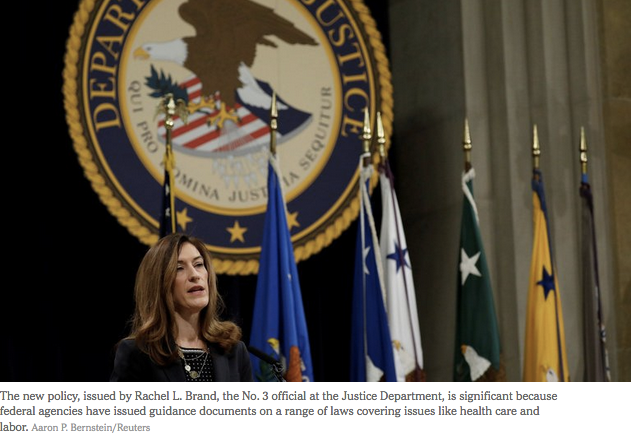WASHINGTON — The Trump administration has adopted new limits on the use of “guidance documents” that federal agencies have issued on almost every conceivable subject, an action that could have sweeping implications for the government’s ability to sue companies accused of violations.
Guidance documents offer the government’s interpretation of laws, and often when individuals or companies face accusations of legal violations, what they have really violated are the guidance documents. Defense lawyers say the change in policy gives them a powerful tool to fend off allegations of wrongdoing against their clients.
It also advances a goal declared by President Trump in his first days in office: to reduce the burden and cost of federal rules and requirements. But consumer advocates say the move will crimp enforcement of crucial protections.
The new policy, issued by the No. 3 official at the Justice Department, Rachel L. Brand, is significant because federal agencies have issued hundreds of guidance documents on a wide range of laws covering issues like health care, the environment, civil rights and labor.
Under the revised policy, Ms. Brand said, the Justice Department will not “use its enforcement authority to effectively convert agency guidance documents into binding rules.” Moreover, she said, Justice Department lawyers, who represent federal agencies in court, “may not use noncompliance with guidance documents as a basis for proving violations of applicable law.”




